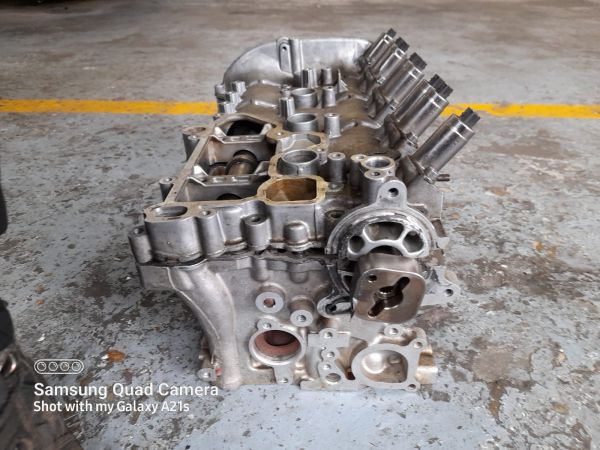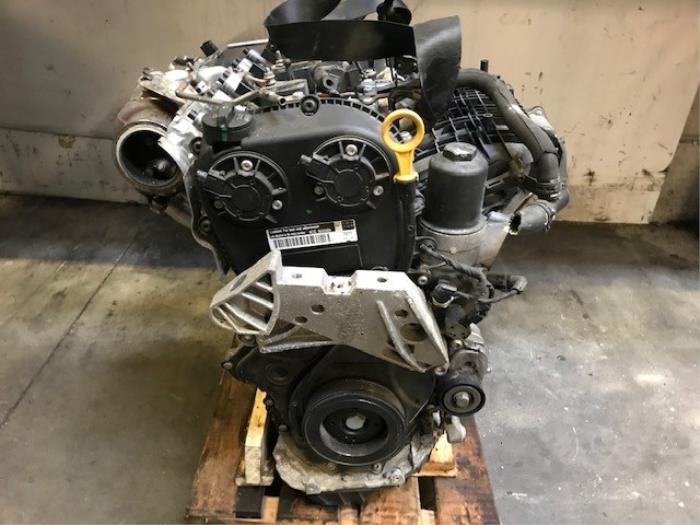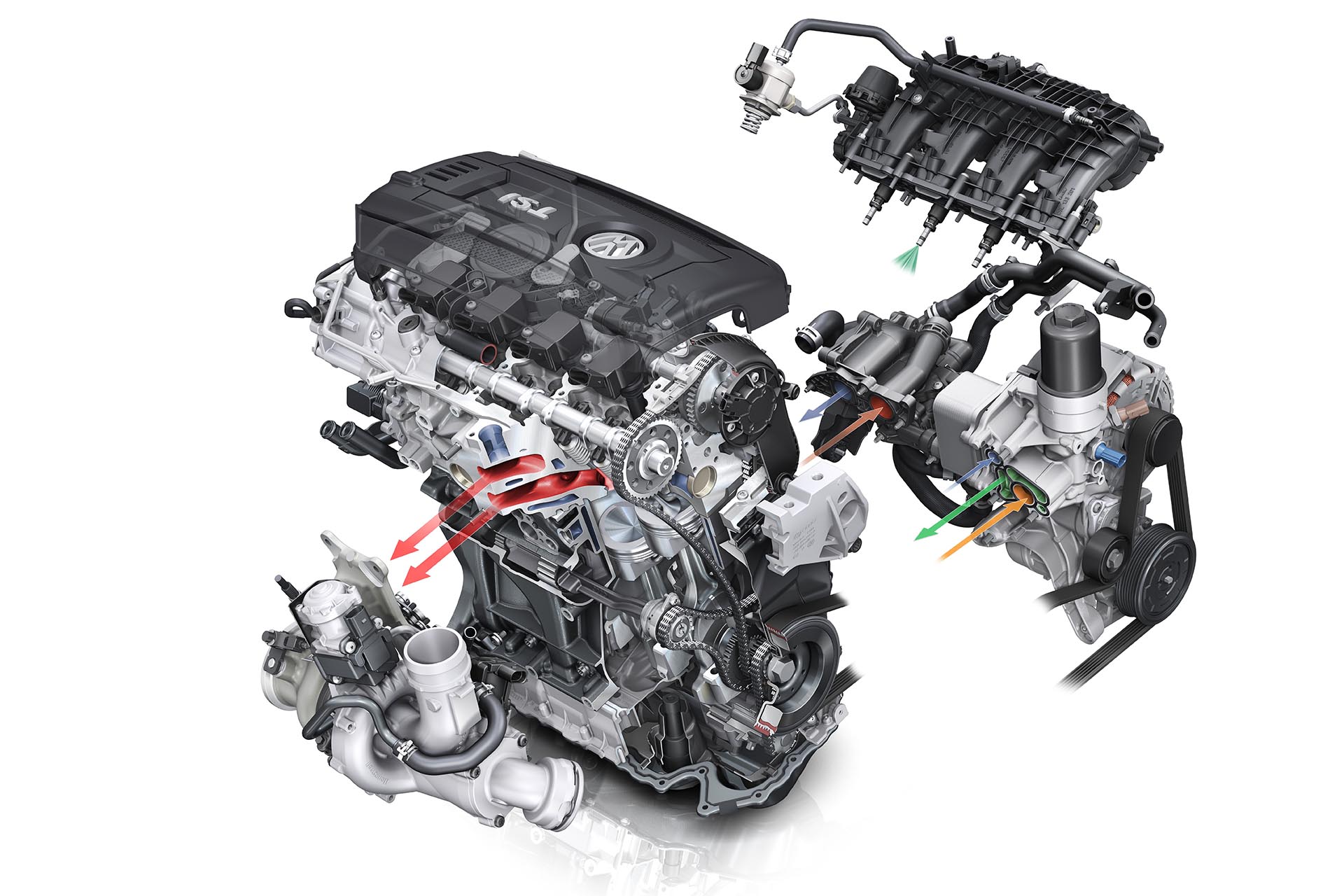A Deep Dive into the Golf 7 GTI Engine: Performance, Efficiency, and More
A Deep Dive into the Golf 7 GTI Engine: Performance, Efficiency, and More
Blog Article
Your Overview to the Golf 7 GTI Engine: Dependability and Upgrades
The Golf 7 GTI, equipped with its 2.0-liter turbocharged inline-four engine, stands for an equilibrium of efficiency and dependability that charms to enthusiasts and everyday vehicle drivers alike. Recognizing the aspects that add to its stability, alongside potential problems and their solutions, is crucial for taking full advantage of the driving experience. Discovering different performance upgrades can significantly enhance both power and effectiveness. The concern remains: what particular upgrades can change your GTI right into a genuinely remarkable automobile while ensuring its long life?
Overview of the Golf 7 GTI Engine
The heart of the Golf 7 GTI is its 2.0-liter TSI engine, a turbocharged four-cylinder that delivers a remarkable mix of power and effectiveness. This engine produces a durable 220 horse power and 258 lb-ft of torque, permitting the vehicle to speed up from 0 to 60 miles per hour in just 5.6 seconds, showcasing its sporty personality. The turbocharged design not only enhances performance however also enhances gas efficiency, making it a useful choice for everyday driving.
Incorporating advanced technology, the engine includes direct gas shot, which enhances combustion efficiency and decreases discharges. Furthermore, the Golf 7 GTI is outfitted with either a six-speed guidebook or a six-speed DSG dual-clutch transmission, supplying drivers with the flexibility to pick their chosen driving design. The lorry's front-wheel-drive design, integrated with a well-tuned suspension, guarantees agile handling and a receptive driving experience.
Engine Dependability Variables
Dependability is an important element of any performance-oriented lorry, and the Golf 7 GTI's engine is no exception. A number of elements add to the overall reliability of this very pertained to powerplant, which is vital for both day-to-day driving and spirited efficiency.
To Start With, the Golf 7 GTI is outfitted with a durable 2.0-liter turbocharged inline-four engine, recognized for its reliable design and strong engineering. This engine features a forged steel crankshaft and aluminum engine block, which give superior stamina and longevity while decreasing weight.
Second of all, regular upkeep plays a vital duty in improving engine reliability. Sticking to the producer's advisable solution periods, using premium lubes, and replacing important elements such as spark filters and plugs can considerably extend engine life.
In addition, the high quality of fuel used can likewise affect integrity. Costs gas is suggested to make certain optimal performance and decrease the risk of knocking or ignition.
Last but not least, the car's digital monitoring system continuously monitors engine criteria, permitting real-time changes to enhance efficiency and effectiveness while safeguarding against possible concerns. Collectively, these variables emphasize the Golf 7 GTI engine's reputation for reliability among fanatics and daily drivers alike.
Common Issues and Solutions
The Golf 7 GTI, while celebrated for its efficiency, is not without its challenges. Amongst one of the most regularly reported problems are engine oil intake and turbocharger failures, which can significantly impact lorry dependability. Comprehending these common issues and their options is important for preserving optimum engine performance.

Engine Oil Consumption
While many lovers value the efficiency of the Golf 7 GTI, engine oil usage can emerge as a noteworthy issue. Owners may observe that their cars need more constant oil top-ups than expected, commonly associated to different elements integral in the engine's style and operation.
One usual issue is the engine's straight fuel injection system, which can bring about boosted oil intake due to the combustion process. Additionally, the use of high-performance driving routines can intensify oil burn-off, especially under hostile throttle problems. Vehicle drivers might likewise experience oil leaks from seals and gaskets, which can add to minimized oil degrees.
To resolve oil usage, normal upkeep is essential. Regular oil adjustments utilizing high-grade synthetic oil can aid preserve ideal engine efficiency and longevity. Checking oil degrees and conducting timely checks can protect against possible problems before they intensify. If too much usage continues, it may be suggested to speak with a professional technician to assess the engine for potential interior troubles, such as used piston rings or shutoff seals. Taking on these methods can substantially mitigate concerns pertaining to oil consumption in the Golf 7 GTI, ensuring a much more satisfying and trustworthy driving experience.
Turbocharger Failings
Turbocharger failings can substantially affect the efficiency of the Golf 7 GTI, leading to decreased power and efficiency. Oil leaks frequently stem from used seals or damaged gaskets, which can lead to oil contamination and subsequent engine damage.
Another widespread problem is wastegate failure, which can cause overboost or underboost conditions. This not only impacts the car's efficiency but can also result in major engine damages if left untreated. Updating to an extra robust wastegate can improve integrity and performance.
Extreme shaft play indicates wear in the turbocharger's bearings, which can cause a full turbo failure. Keeping an eye on boost pressure and listening for unusual sounds can aid discover this issue early.
To stop turbocharger failures, routine upkeep, including oil adjustments and air filter replacements, is essential. Furthermore, purchasing premium aftermarket components may provide improved integrity and efficiency, ultimately enhancing the driving experience of the Golf 7 GTI.
Efficiency Upgrades to Think About
What efficiency upgrades can absolutely boost the driving experience of a Golf 7 GTI? To release the complete possibility of this renowned hot hatch, a number of targeted adjustments can enhance power, taking care of, and total driving enjoyment.
Among the most reliable upgrades is a high-performance turbocharger. Changing the supply system with an aftermarket alternative can significantly raise horse power and torque, delivering a more electrifying acceleration experience. Matching this upgrade with a performance intercooler aids preserve optimum temperature levels, guaranteeing consistent power delivery.
Next, consider upgrading the exhaust system. A less restrictive exhaust not only boosts engine performance yet likewise produces a much more hostile audio that amplifies the cars and truck's stylish character. Matching this with a remapped ECU will certainly enhance fuel shipment and ignition timing, more boosting performance.
Suspension upgrades, such as flexible coilovers, can improve managing by decreasing the automobile's center of mass and reducing body roll. In addition, a collection of high-performance tires will certainly enhance hold, permitting sharper cornering and enhanced total security.
Together, these upgrades can transform the Golf 7 GTI right into an extra thrilling and vibrant driving device, making every journey an unforgettable experience. golf 7 gti engine.
Advised Maintenance Practices
Preserving the Golf 7 GTI engine needs interest to key practices that make sure optimum performance and longevity. Regular oil modifications are vital for engine health, while prompt timing belt substitute is important to stop prospective failings. Implementing these upkeep techniques will certainly assist keep your car running efficiently and effectively.
Routine Oil Adjustments
Normal oil adjustments are important for the ideal performance and durability of the Golf 7 GTI's engine. Keeping a consistent oil adjustment schedule ensures that the engine operates smoothly and efficiently. The recommended period for oil modifications is commonly every 5,000 to 10,000 kilometers, depending upon driving conditions and the sort of oil utilized.
Making use of top quality synthetic oil is important as it gives superior lubrication and thermal security compared to standard oils. This is specifically crucial for the Golf 7 GTI, which includes a turbocharged engine that creates higher operating temperature levels. Normal oil changes aid to get rid of pollutants and sludge build-up, which can endanger engine efficiency and result in premature wear.
Furthermore, fresh oil enhances fuel performance and decreases hazardous emissions, contributing to a cleaner atmosphere. Throughout the oil change process, it is additionally suggested to change the oil filter to ensure optimum purification and protect against any kind of debris from going into the engine. Following these techniques not only helps preserve the engine's stability yet additionally preserves the value of the vehicle, making regular oil transforms an important aspect of responsible GTI possession.
Timing Belt Replacement
The timing belt is a vital part of the go to the website Golf 7 GTI's engine, in charge of integrating the rotation of the crankshaft and camshaft. This synchronization is crucial for optimal engine efficiency and effectiveness. If the timing belt stops working, it can cause catastrophic engine damages, making timely substitute essential.

When preparing a timing belt substitute, it is a good idea to also replace the water pump and tensioner. These elements operate in conjunction with the timing belt and typically experience similar wear, making certain optimum efficiency and longevity. Making use of OEM components is recommended for their reliability and compatibility with the Golf 7 GTI's engine.
Expert installation is very motivated, as incorrect installation can cause severe engine malfunctions. Normal upkeep of the timing belt not only safeguards the integrity of the engine yet also enhances the overall driving experience of the Golf 7 GTI. golf 7 gti engine. Prioritizing this task assists preserve car integrity and efficiency with time
Aftermarket Components and Adjustments
Various fanatics transform to aftermarket alterations and parts to improve the efficiency and appearances of the Golf 7 GTI. These upgrades can significantly enhance the automobile's responsiveness, dealing with, and general driving experience. Popular modifications include high-performance air consumptions, exhaust systems, and intercoolers, which can increase horse power and torque by enhancing air intake and exhaust flow.
Suspension upgrades are additionally prevalent, with alternatives ranging from reducing springs to completely adjustable coilover packages that boost experience top quality and cornering capability. Upgraded brakes, including performance pads and blades, can offer much better quiting power, making certain safety and control throughout perky driving.
Visual modifications, such as aftermarket wheels, body sets, and customized lights, allow hop over to these guys proprietors to personalize their cars while keeping a sporty appearance. Engine adjusting, whether with ECU remapping or standalone engine administration systems, can unlock extra efficiency capacity, making the GTI much more electrifying to drive.
While aftermarket adjustments can generate significant benefits, it's important to pick respectable brand names and take into consideration the potential effect on service warranty and dependability. Appropriate installation and tuning are critical to make certain the durability of the car while taking pleasure in the improvements.
Enhancing Gas Efficiency
Improving fuel performance in the Golf 7 GTI can bring about considerable expense savings and a lowered environmental effect. Achieving much better gas economy requires a combination of driving habits, maintenance techniques, and critical alterations.
One efficient technique is adopting a smooth driving style, preventing quick velocity and hefty braking, which can drastically lower fuel intake. Keeping optimal tire pressure is also essential; under-inflated tires can raise rolling resistance, causing reduced efficiency. Regular servicing, consisting of engine tuning and air filter substitutes, makes certain that the engine runs at peak efficiency, further improving gas economic climate.
For those seeking upgrades, take into consideration an efficiency song that concentrates on performance rather than large power. Eco-mode setups, if offered, can change throttle action and change indicate take full advantage of fuel financial savings. Furthermore, lightweight aftermarket wheels can lower weight and boost effectiveness without compromising efficiency.
Last but not least, utilizing wind resistant improvements, such as a front splitter or rear looter, can decrease drag at greater speeds, contributing to much better gas economy. By carrying out these modifications and approaches, Golf 7 GTI proprietors can delight in enhanced fuel performance while preserving the vehicle's perky driving qualities.
Verdict
In conclusion, the Golf 7 GTI engine exemplifies a blend of efficiency and dependability, driven by a well-engineered 2.0-liter turbocharged inline-four. Various performance upgrades and aftermarket alterations can enhance driving experience while keeping reliability.
The Golf 7 GTI, equipped with its 2.0-liter turbocharged inline-four engine, stands for an equilibrium of efficiency and dependability that appeals to enthusiasts and daily motorists go alike. Regular oil changes utilizing high-grade artificial oil can assist keep optimum engine efficiency and long life.Routine oil changes are essential for the optimal performance and long life of the Golf 7 GTI's engine. Normal servicing, consisting of engine adjusting and air filter substitutes, ensures that the engine runs at peak efficiency, further enhancing fuel economic climate.

Report this page